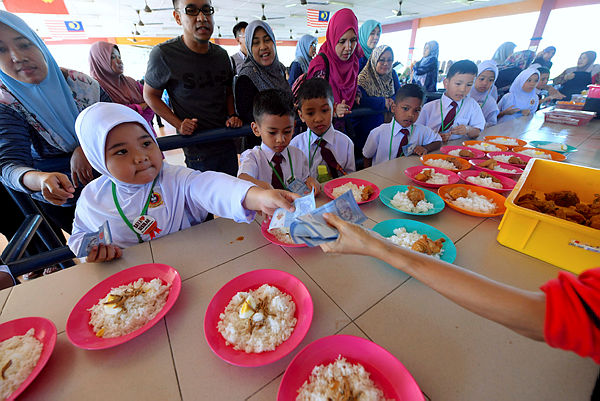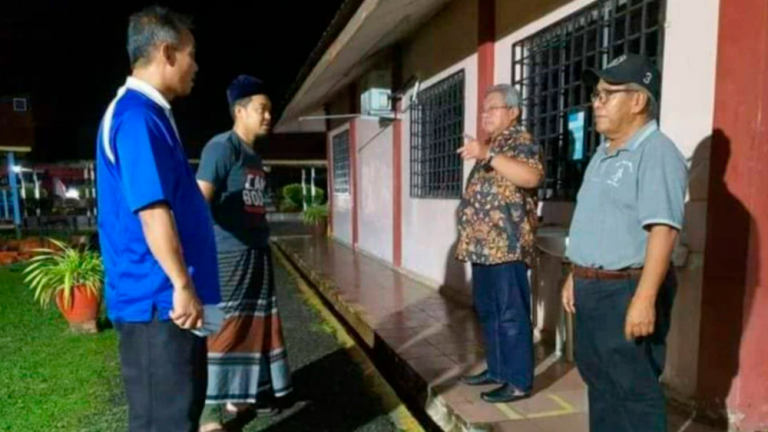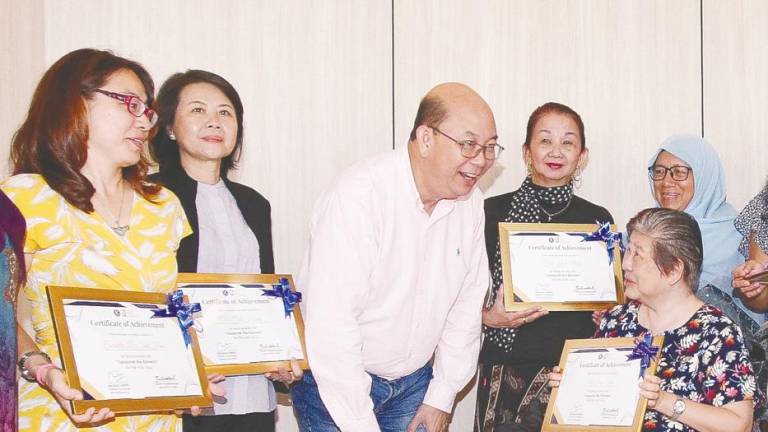KUALA LUMPUR: Several Parents-Teacher Associations (PTAs) described the first phase of the free breakfast programme (PSP) to be implemented on Jan 20 will have a positive impact on students from low-income households (B40).
Yesterday, Prime Minister Tun Dr Mahathir Mohamad announced that the PSP, introduced by former Education Minister Dr Maszlee Malik, would continue but targeted at students from low-income families.
Dr Mahathir said it would be unfair to provide such assistance to children from wealthier families and the beneficiaries of the programme would be increased from time to time.
National Parents-Teacher Associations Consultative Council (PIBGN) president Associate Prof Datuk Dr Mohd Ali Hassan said PIBGN supported the Prime Minister’s proposal as it would benefit (recipients) and at the same time reducing wastage in managing education funds.
“It is not wrong for any programme to be implemented or continued, for them to be reviewed for effectiveness. Initiatives such as the breakfast programme, school aids and book vouchers, for example, should not be distributed to all students.
“The assistance should depend on one’s situation. By right, all forms of assistance are limited to those in need, and we should do it in moderation and not wasteful,” he told Bernama here today.
Meanwhile, Malaysian Muslim Teachers’ Association (iGuru) president Mohd Azizee Hasan said the Ministry of Education (MoE) needed to closely monitor (field officials) in implementing the programme to prevent misuse of power, especially in granting the tenders, in order to prevent children from the B40 families becoming the victims.
“The MoE also needs to monitor on a regular basis so that it is in compliance with the plan and the school complies with the standard operating procedure (SOP) to avoid wastage,” he said.
Mohd Azizee said iGuru also supported the ministry’s efforts in implementing PSP as it would help students to obtain a good education through the provision of good and quality food.
“IGuru sees this programme as a great initiative to ensure that all B40 students to receive a healthy and balanced diet for physical and mental growth. Healthy and balanced nutrition ensures the learning process of the students while also helping their educational excellence,” he said.
Previously, MoE had announced that the PSP would be implemented in 100 primary schools across the country and involved 37,000 students and 1,600 teachers on a daily basis with an estimated cost of RM22 million.
According to MoE, the implementation of the first phase of PSP will use the concept of Grab ‘n’ Go which is made up of a milk drink or nutritious drink and snacks such as bread, biscuits, cereal, kuih, sandwich, fruits or hard-boiled eggs.
The selection of schools for the first phase was made based on schools with the highest percentage of students from the B40 group and it also took into consideration all types of schools namely national primary schools (SK), Chinese national-type primary schools (SJKC) and Tamil national-type primary schools (SJKT).
Meanwhile, Parents Action Group for Education Malaysia (Page) chairman Datin Noor Azimah Abdul Rahim acknowledged that the government’s decision to limit the programme to the target group was appropriate but the government had to take into account spending controls and possible wastage.
“Sometimes children go to school without breakfast not because their parents don’t want to prepare the meals but there are financial constraints that make them unable to provide food for the children.
“In addition, not all children take breakfast between 7 am and 8.30 am, the duration stipulated for the programme, while some may not like the food served which can cause wastage,” she said. — Bernama














